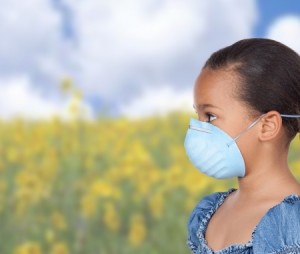
But for many, it’s also a time for scratchy throats, watery eyes, and itchy skin, all caused by summer allergens.
You see, spring and fall aren’t the only seasons that wreak havoc on allergy sufferers. Here are some of the most common summertime allergy triggers that might be causing you minor to big-time discomfort.
Pollen
While trees finish pollinating by late spring, grasses and weeds can trigger allergies throughout the summer months, triggering a runny nose, itchy eyes, and other symptoms. Some of the worst offenders are ragweed, cockleweed, Russian thistle, Bermuda grass, blue grass, and red top.
Dust Mites
Because they thrive in warm, humid temperatures, dust mites peak during the summer months. They nest in mattresses, carpets, and upholstery and can cause sneezing, runny noses, and problems with your breathing.
Mold
Mold, both indoor and outdoor, can trigger allergic reactions and exacerbate asthma symptoms. Certain types of outdoor mold, like Alternaria, tend to peak in late summer and fall, while warmer temps and increased humidity provide the ideal environment for indoor mold growth.
Stings and Bites
Getting stung by a bee or bitten by a pesky mosquito is no fun for anyone. But for some, it’s downright dangerous. Bees, wasps, yellow jackets, hornets, mosquitos, and fire ants are just some of the culprits to look out for this and every summer.
If the symptoms are serious enough, you’ll want to see your doctor for fast and effective treatment. Short of that , there are a number of things you can do to lessen the impact of summer allergens, including the following:
- Wear a surgical mask while cutting your lawn.
- If you have your lawn cut for you, make sure all windows and doors are closed while it’s being tended to.
- Get your family in the habit of taking their shoes off as soon as they enter your house and leave them by the entrance way. That will prevent pollen, ragweed, pesticides, etc., from being dragged all through your home.
- Invest in house plants known for their air cleaning ability, such as rubber trees, cacti, ivy, and chlorophytum.
For improved air quality throughout your home, talk to the pros at Absolute Air about such indoor air quality solutions as whole-house air filtration and whole-house humidity control systems. Both of these and other products help prevent and lessen the effects of allergy and asthma symptoms.
